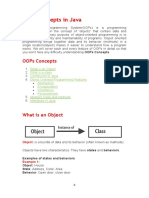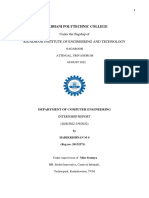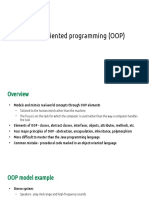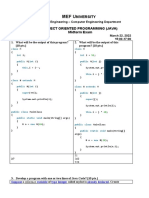0% found this document useful (0 votes)
38 views4 pagesJava OOPs Concepts
The document provides a detailed explanation of Object-Oriented Programming (OOP) in Java, highlighting its four fundamental concepts: encapsulation, inheritance, polymorphism, and abstraction. It includes real-world examples, such as a bank system, to illustrate these concepts and how they can be implemented in Java. The document emphasizes the importance of these principles in creating modular, reusable, and scalable applications.
Uploaded by
aditya palCopyright
© © All Rights Reserved
We take content rights seriously. If you suspect this is your content, claim it here.
Available Formats
Download as PDF, TXT or read online on Scribd
0% found this document useful (0 votes)
38 views4 pagesJava OOPs Concepts
The document provides a detailed explanation of Object-Oriented Programming (OOP) in Java, highlighting its four fundamental concepts: encapsulation, inheritance, polymorphism, and abstraction. It includes real-world examples, such as a bank system, to illustrate these concepts and how they can be implemented in Java. The document emphasizes the importance of these principles in creating modular, reusable, and scalable applications.
Uploaded by
aditya palCopyright
© © All Rights Reserved
We take content rights seriously. If you suspect this is your content, claim it here.
Available Formats
Download as PDF, TXT or read online on Scribd
/ 4






















































































